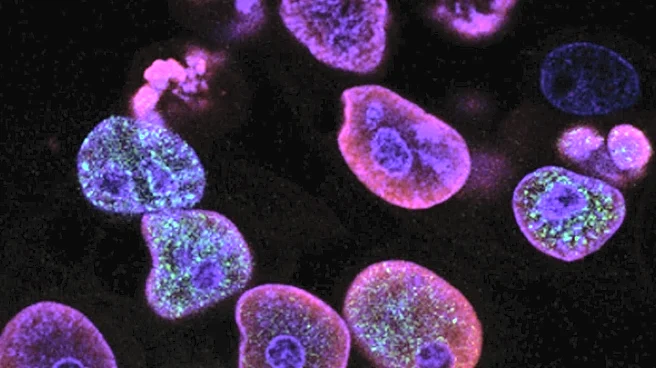What's Happening?
Scientists have successfully transplanted CRISPR-edited islet cells into a patient with type 1 diabetes, marking a breakthrough in diabetes treatment. These cells continuously secrete insulin and evade immune detection, eliminating the need for immunosuppressants. The research, published in the New England Journal of Medicine, involved gene editing to knock out key genes and introduce the CD47 protein, which confuses the immune system. The study shows promising results, with the patient experiencing improved insulin secretion and blood sugar regulation.
Why It's Important?
This breakthrough offers hope for millions of type 1 diabetes patients worldwide, potentially reducing the need for insulin injections. The use of CRISPR gene editing to create immune-evasive islet cells represents a significant advancement in diabetes treatment, with implications for other autoimmune diseases. The success of this approach could lead to more personalized and effective therapies, improving patient outcomes and quality of life.
What's Next?
Sana Biotechnology plans to conduct more clinical trials starting next year to further study the efficacy and safety of gene-edited islet cells. These trials will aim to refine the treatment and explore its potential to eliminate the need for insulin injections entirely. The research could pave the way for broader applications of gene editing in treating autoimmune diseases.









